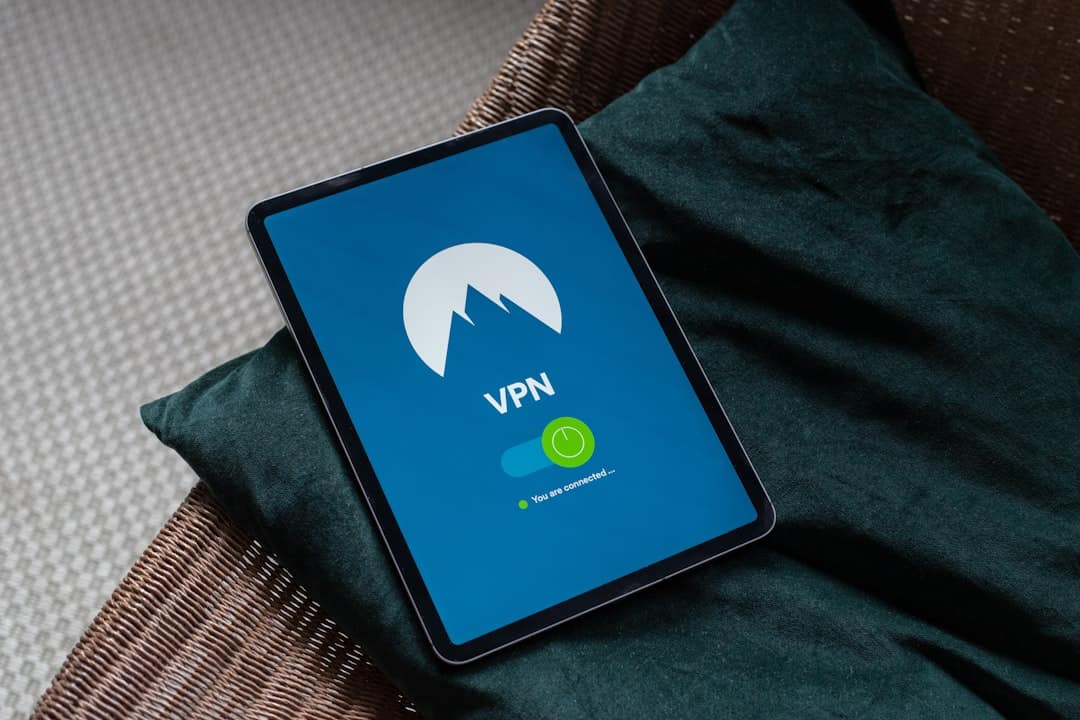Cyber threats manifest in various forms, each capable of causing significant damage to a business’s digital infrastructure. Phishing attacks employ deceptive emails or websites to manipulate individuals into divulging sensitive information, such as login credentials or financial data. This can result in unauthorized access to company systems and data breaches.
Malware, which includes viruses, worms, and trojans, is malicious software designed to disrupt, damage, or gain unauthorized access to computer systems. Ransomware, a specific type of malware, encrypts a company’s data and demands payment for its release, potentially causing substantial financial losses and operational disruptions. The impact of these cyber threats on businesses can be extensive, encompassing financial losses, reputational damage, legal consequences, and operational disruptions.
A successful phishing attack may lead to unauthorized access to sensitive financial information, resulting in monetary losses and potential legal ramifications. Malware infections can disrupt business operations, causing downtime and reduced productivity. Ransomware attacks often result in significant financial losses due to ransom payments and data restoration costs.
Moreover, the reputational damage caused by cyber incidents can have long-lasting effects on customer trust and loyalty. Given the diverse nature of cyber threats and their potential consequences, it is essential for businesses to recognize and understand these risks. This knowledge forms the foundation for implementing effective security measures to protect digital assets and mitigate the potential impact of cyber incidents.
To safeguard their digital assets from cyber threats, businesses must implement strong security measures. Firewalls play a crucial role in this regard by acting as a barrier between a company’s internal network and external networks such as the internet. They monitor and control incoming and outgoing network traffic based on predetermined security rules, thereby preventing unauthorized access and protecting against cyber attacks.
Encryption is another essential security measure that businesses should implement to protect sensitive data. It involves the use of algorithms to convert information into an unreadable format that can only be accessed with the appropriate decryption key. This ensures that even if data is intercepted by unauthorized parties, it remains secure and unintelligible.
In addition to firewalls and encryption, businesses should also prioritize the use of secure passwords to protect their digital assets. Strong passwords are essential for preventing unauthorized access to sensitive systems and data. They should be complex, unique, and regularly updated to minimize the risk of being compromised.
Furthermore, implementing multi-factor authentication (MFA) can add an extra layer of security by requiring users to provide multiple forms of verification before accessing company resources. By implementing these strong security measures, businesses can significantly reduce the risk of falling victim to cyber threats and protect their digital assets from unauthorized access and exploitation. In summary, implementing strong security measures such as firewalls, encryption, and secure passwords is crucial for safeguarding a business’s digital assets from cyber threats.
These measures play a vital role in preventing unauthorized access, protecting sensitive data, and minimizing the potential impact of cyber incidents on business operations.
One of the most critical aspects of cybersecurity is educating employees on best practices and the potential consequences of failing to adhere to security protocols. Employees are often the first line of defense against cyber threats, making it essential for them to be aware of the risks and how to mitigate them. Training programs should cover topics such as identifying phishing attempts, recognizing suspicious links or attachments, and understanding the importance of strong passwords.
Additionally, employees should be educated on the potential consequences of failing to adhere to security protocols, such as data breaches, financial losses, and reputational damage. By understanding the impact of their actions on the company’s cybersecurity posture, employees are more likely to take security measures seriously and act as proactive defenders against cyber threats. Furthermore, regular cybersecurity training sessions and awareness programs can help employees stay informed about the latest threats and best practices.
This ongoing education ensures that employees are equipped with the knowledge and skills necessary to identify and respond to potential cyber threats effectively. Additionally, businesses should consider implementing policies and procedures that promote a culture of cybersecurity awareness and accountability among employees. By emphasizing the necessity of training employees on cybersecurity best practices and the potential consequences of failing to adhere to security protocols, businesses can strengthen their overall security posture and reduce the likelihood of falling victim to cyber attacks.
In conclusion, educating employees on cybersecurity best practices and the potential consequences of failing to adhere to security protocols is crucial for enhancing a business’s overall security posture. By empowering employees with the knowledge and skills necessary to recognize and respond to cyber threats effectively, businesses can significantly reduce their vulnerability to potential attacks.
Keeping all software and systems up to date is crucial for protecting against known vulnerabilities and potential cyber attacks. Software updates often include patches that address security vulnerabilities identified by developers or reported by users. Failing to install these updates promptly can leave systems exposed to exploitation by cybercriminals seeking to exploit known weaknesses.
Additionally, outdated software may lack essential security features that have been introduced in newer versions, further increasing the risk of a successful cyber attack. Therefore, businesses must prioritize regular software updates across all devices and systems to minimize their exposure to potential security threats. Furthermore, businesses should consider implementing automated patch management solutions to streamline the process of updating software across their network.
These solutions can help ensure that all devices receive timely updates without requiring manual intervention from IT staff. Additionally, businesses should conduct regular vulnerability assessments to identify any weaknesses in their systems that may require immediate attention. By highlighting the significance of keeping all software and systems up to date, businesses can reduce their susceptibility to known vulnerabilities and enhance their overall cybersecurity posture.
In summary, regularly updating software is essential for protecting against known vulnerabilities and potential cyber attacks. By prioritizing software updates across all devices and systems, businesses can minimize their exposure to security threats and strengthen their defenses against potential cyber incidents.
Regularly backing up critical business data is essential for minimizing the impact of potential cyber incidents. Data backups serve as a safety net in the event of a ransomware attack, data breach, or system failure, allowing businesses to restore lost or encrypted data without significant disruption to operations. It is crucial for businesses to implement robust backup solutions that store data securely and ensure its availability when needed.
This may involve using cloud-based backup services or maintaining offline backups in secure locations to protect against data loss caused by cyber incidents. Moreover, businesses should establish regular backup schedules to ensure that critical data is consistently backed up and readily available for recovery purposes. This may involve conducting daily or weekly backups depending on the volume and criticality of the data being stored.
Additionally, businesses should test their backup systems regularly to verify their effectiveness and reliability in restoring data in case of an emergency. By stressing the importance of regularly backing up critical business data, businesses can minimize the potential impact of cyber incidents on their operations and ensure business continuity in the face of unforeseen events. In conclusion, regularly backing up critical business data is crucial for minimizing the impact of potential cyber incidents on operations.
By implementing robust backup solutions and establishing regular backup schedules, businesses can protect their valuable data from loss or corruption caused by cyber threats.
Having a well-defined incident response plan is essential for responding effectively to cybersecurity incidents that may occur. This plan outlines the steps that need to be taken in the event of a cyber incident, including how to detect, contain, eradicate, and recover from an attack. It also assigns roles and responsibilities to key personnel within the organization who will be responsible for executing the plan in case of an emergency.
By developing an incident response plan, businesses can ensure a coordinated and effective response to cyber incidents that minimizes their impact on operations. Furthermore, incident response plans should be regularly reviewed and updated to reflect changes in technology, business processes, or threat landscapes. This ensures that the plan remains relevant and effective in addressing new and emerging cyber threats.
Additionally, businesses should conduct regular tabletop exercises or simulations to test their incident response capabilities and identify any areas for improvement. By discussing the necessity of having a well-defined incident response plan in place, businesses can prepare themselves to respond effectively to potential cyber incidents and minimize their impact on operations. In summary, developing an incident response plan is crucial for ensuring an effective response to cybersecurity incidents that may occur.
By outlining clear steps for detecting, containing, eradicating, and recovering from cyber attacks, businesses can minimize the impact of incidents on their operations and protect their digital assets from exploitation.
Businesses should consider enlisting the help of cybersecurity experts to assess their current security measures and provide guidance on strengthening their defenses. Cybersecurity professionals possess specialized knowledge and expertise in identifying vulnerabilities, assessing risks, and implementing effective security controls. By seeking professional help, businesses can gain valuable insights into their current security posture and receive recommendations for improving their overall cybersecurity resilience.
Moreover, cybersecurity experts can assist businesses in developing customized security strategies tailored to their specific needs and risk profiles. This may involve conducting comprehensive security assessments, implementing advanced threat detection technologies, or providing ongoing monitoring and support services. Additionally, cybersecurity experts can offer valuable training and education programs for employees to enhance their awareness of cyber threats and best practices for mitigating them.
By encouraging businesses to seek professional help from cybersecurity experts, they can benefit from specialized guidance and support in strengthening their defenses against potential cyber attacks. In conclusion, enlisting the help of cybersecurity experts is essential for assessing current security measures and receiving guidance on strengthening defenses against potential cyber attacks. By leveraging the expertise of cybersecurity professionals, businesses can enhance their overall cybersecurity posture and better protect their digital assets from exploitation.
In conclusion, cybersecurity threats pose significant risks to businesses’ digital assets and operations. Recognizing these threats is crucial for implementing strong security measures such as firewalls, encryption, secure passwords; educating employees; regularly updating software; backing up data; developing an incident response plan; seeking professional help from cybersecurity experts; all these are essential steps towards safeguarding against potential cyber incidents. By taking proactive measures to enhance their cybersecurity posture, businesses can minimize their vulnerability to cyber threats and protect their valuable digital assets from exploitation or loss.
If you’re interested in the future of cybersecurity in the metaverse, you may also want to check out this article on future trends and innovations in the metaverse industry. It explores the potential impact of technological advancements on the metaverse and how they may affect cybersecurity measures within this virtual space.
FAQs
What is cybersecurity?
Cybersecurity refers to the practice of protecting systems, networks, and programs from digital attacks. These attacks are aimed at accessing, changing, or destroying sensitive information; extorting money from users; or interrupting normal business processes.
Why is cybersecurity important?
Cybersecurity is important because it encompasses everything that pertains to protecting our sensitive data, personally identifiable information (PII), protected health information (PHI), intellectual property, data, and governmental and industry information systems from theft and damage attempted by criminals and adversaries.
What are some common cyber threats?
Common cyber threats include malware, phishing, ransomware, denial-of-service attacks, and insider threats. These threats can lead to data breaches, financial loss, and damage to an organization’s reputation.
How can individuals protect themselves from cyber threats?
Individuals can protect themselves from cyber threats by using strong, unique passwords, enabling two-factor authentication, keeping software and systems updated, being cautious of suspicious emails and links, and using reputable antivirus software.
How can organizations improve their cybersecurity measures?
Organizations can improve their cybersecurity measures by implementing a comprehensive cybersecurity strategy, conducting regular security assessments, providing employee training on cybersecurity best practices, and investing in advanced security technologies such as firewalls, intrusion detection systems, and encryption.











Leave a Reply